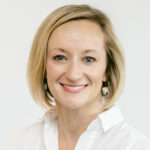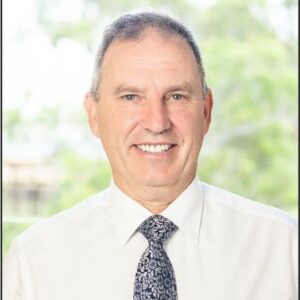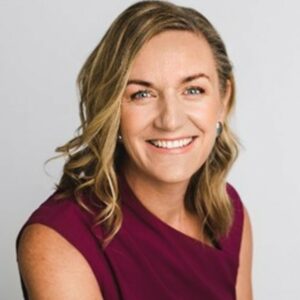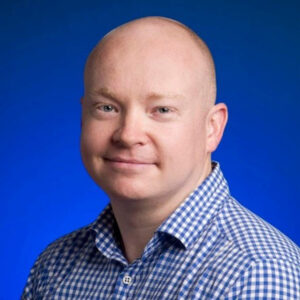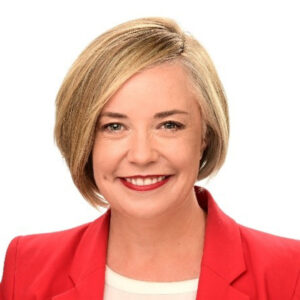Speakers
Message from Summit Host
Welcome to the inaugural Innovation for Impact Summit, hosted in beautiful Meanjin (Brisbane) and proudly convened by CSIRO, Australia’s national science agency.
Through this event, we hope to start a national discussion about the ways in which organisations across our innovation ecosystem can work together to solve the most pressing problems facing humanity and position our country for ongoing success.
As we contemplate the scale of the challenges ahead, including the pervasive impacts of climate change and threats to our environment, our traditional approaches to innovation and partnership will not suffice. No longer can we rely on the periodic discoveries and incremental changes achieved through disconnected innovation efforts.
We need to harness the considerable talent and expertise across our innovation system, mobilise our resources at scale and align our efforts toward shared objectives. We also need to accelerate solutions that address the complexity of the problems, spanning science and technology, policy, sociotechnical, skills and cultures.
These ideas drive mission-oriented innovation, and they led to the creation of CSIRO’s Missions Program in 2020. CSIRO now proudly hosts a portfolio of eight launched missions and five missions in development, tackling issues of importance to Australian health, prosperity, and sustainability.
CSIRO is not the only organisation using this approach — organisations and jurisdictions across Australia and the world have similarly identified the potential of mission-directed initiatives to drive novel approaches to collaboration at scale. We are delighted to host this event to learn from leaders and experts from industry, government, universities, and other critical sectors. Through this Summit, we hope to share insights and outcomes of collaborative and mission-oriented innovation and consider how we can maximise our collective impact.
As part of the Summit program, we will hear from international innovation experts and learn from the experiences of other jurisdictions designing and delivering collaborative and mission-led initiatives, including our keynote presenter Christian Bason, Chief Executive of the Danish Design Council. We’re also honoured to include Queensland’s Chief Entrepreneur, Julia Spicer OAM, and a suite of distinguished speakers on the program to share insights on their important work.
I can’t wait to take part in the discussions and hear how we can accelerate collaboration and innovation to shape a prosperous future for Australia and communities around the world. On behalf of CSIRO, thank you for joining us, and we hope you enjoy this event.
Kirsten Rose
Acting Chief Executive
CSIRO

Kirsten Rose
Keynote Speakers
|
Gail Ker OAM |
Over the past 30 years, Gail Ker OAM, DUniv has contributed her vast industry experience and unrivalled expertise in the Australian multicultural, humanitarian and community sectors. Gail is the Special Advisor for Settlement and Community Capacity Building at The Social Policy Group (SPG) – a national not-for-profit body with specialist expertise in social policy and program design. She is also the THRIVE Logan Project Lead – an initiative auspiced by the SPG that works to connect Logan’s diverse communities and partners to enhance economic and social participation in the Logan area. Prior to the SPG, Gail held prominent roles including as the CEO of Access Community Services Ltd and implemented projects spanning community planning, social cohesion, strategic partnerships, employment pathways, and strategic direction. Through her work, Gail has led the creation of social, cultural and economic opportunities that have transformed the lives of countless individuals and communities for the better. |
|
Professor Elanor Huntington |
Prior to CSIRO, Elanor was the Dean of the College of Engineering and Computer Science at the Australian National University (ANU). She has also held Board appointments at Innovation Science Australia, Significant Ventures, Questacon and other government scientific advisory roles. Elanor was elected a Fellow of the Academy of Technology and Engineering in 2020 and was named an honorary Fellow of Engineers Australia in 2017. She led the extended Group of Eight (Go8+) Engineering Deans as first female Chair from 2017-2019. In 2000, Elanor completed her PhD in experimental Quantum Optics. Her current research includes the control of quantum systems, more specifically; the interface between theory and applications. She was a Program Manager in the ARC Centre of Excellence for Quantum Computation and Communication Technologies for nearly 2 decades. |
|
Dr Christian Bason
|
Christian is currently responsible for setting direction for strategic initiatives for mission-oriented innovation methodology, redesigning organisations, and capacity for driving societal transitions by design. He’s a keynote speaker and presenter on design as a method and mindset for sustainable change at home and abroad. Previously, he was the Director of MindLab, the Danish government’s innovation team, and Business Manager with Ramboll Management Consulting. He’s the author of nine books on innovation, design, and leadership, including Expand: Stretching the Future by Design (2022) and The Organization was set free, and the Leadership Had to be Rediscovered (2023, in Danish). I’ve published in, amongst others, Harvard Business Review and Stanford Social Innovation Review and has taught executives at Oxford Saïd Business School, Henley MBA, the European School of Administration, and Copenhagen Business School. |
|
|
Alex is Director of Strategic Delivery within Australia’s National Science Agency, CSIRO, where he leads a range of industry collaboration and innovation programs, including overseeing the CSIRO Missions Program. Prior to working at CSIRO, Alex served as Australia’s Industry, Innovation and Science Counsellor in Brussels. He was Australia’s representative on the OECD’s science, technology and innovation-related committees, represented Australia on technology and digital issues at the G7 and G20 and managed the bilateral science and innovation relationship with the EU. Prior to that Alex led a range of science, research and innovation initiatives across Australian Government departments and agencies. |
|
|
Julia Spicer OAM was appointed as Queensland’s fifth Chief Entrepreneur in late 2022. The Queensland Chief Entrepreneur is the flag bearer for innovation and entrepreneurship in Queensland and Julia approaches this role with a strong focus on bringing the wealth of knowledge from the regions and creating connections throughout the Queensland Innovation Ecosystem to unlock practical solutions and tangible outcomes. Along with her role as Queensland Chief Entrepreneur, Julia is the Founder of multiple regional businesses based in Goondiwindi, Qld where she lives – Engage & Create Consulting, The Goondiwindi Business Hub Julia continues to run her businesses and has a particular gift for engaging woman and First Nations businesses in her work. |
Speakers
A Healthy Nation
|
|
Former appointments include membership of the Vocational Education Training and Employment Commission, Chair of the Australia New Zealand Foundation, Chair of All Hallows’ School and Board Member of the Queensland Symphony Orchestra. A former broadcaster and columnist, she served for six years on the Board of the Australian Broadcasting Corporation and as Chair of the Corporation’s Audit Committee. Executive appointments include Human Resource Director for Griffith University and Princess Alexandra Hospital, Director of Industrial Relations for Queensland Health, and Industrial Director and General Secretary of the Queensland Public Sector Union. Janine was made a Member of the Order of Australia in 2019 for her significant service to education, community, health and the media. She holds a Bachelor of Adult Education and Graduate Diploma in Business, and is a Fellow of the Australian Human Resource Institute, member of the Australian Institute of Company Directors and an Adjunct Professor for the Griffith University Business School. |
|
|
The Design Health Collab uses a people-centred design approach to activate high-impact healthcare services and products. Future Healthcare leverages Monash University’s deep sector expertise and research, using our interdisciplinary co-design process to understand and address the challenges of complex healthcare systems. Daphne’s academic career has focused on translational design research facilitating innovation to create better patient experiences and change in the complex healthcare landscape. Daphne’s years in commercial roles provided a bedrock of experience, creating meaningful innovation, commercialisation and a segue to her current translational research role. |
|
|
Led the hospital’s response to the COVID-19, Zika, Ebola and Mpox pandemics, as well as the rolling AMR crisis. He is a clinician-researcher at the University of Queensland Centre for Clinical Research and the Herston Infectious Diseases Institute, a collaborative initiative between Metro-North Health, the RBWH Foundation, the CSIRO, Universities and Industry. He is a PhD candidate at the University of Sydney studying viral metagenomics for novel pathogen detection in hospitalised patients, supervised by Professor Edward Holmes. |
|
|
In her previous role at the University of Technology Sydney she co-founded and managed the OUTBREAK project - a big data and AI approach for tracking, tracing, and tackling One Health AMR, which received over $1.5M in grant and industry funding. Branwen has spent a large part of her career in corporate affairs, strategic planning, and communication. She’s held consultancy and management roles in the pharmaceutical industry, non-profit and government sectors in the UK and Australia and has also worked as a journalist in mainstream media and science publishing. |
|
Professor Trent Munro |
Over 25 years’ research and development experience, including with multinational biopharmaceutical company Amgen. As Senior Vice President of Therapeutics at Microba Life Sciences, Professor Munro leads the Company’s strategy to progress its drug development programs and pharma partnering engagements. Prior to joining Microba, Professor Munro held several leadership roles in Australia including Director of the National Biologics Facility (NBF), Program Director of the CEPI funded Rapid Response Vaccine pipeline, Director of the ARC Centre for Biopharmaceutical Innovation (CBI) and Senior Group Leader at the Australian Institute for Bioengineering and Nanotechnology (AIBN) at the University of Queensland. |
Creating New Industries
|
Anna-Maria Arabia |
Anna- Maria over 20 years’ experience in the science sector and is currently leading the Australian Academy of Science, an independent not for profit organisation that provides authoritative and influential scientific advice, represents Australia on key international scientific bodies, builds public awareness and understanding of science, and champions and supports excellence in Australian science. In this role Anna-Maria has led significant reform in global science engagement, in science policy matters, and in improving diversity and inclusion in science. Starting her career as a neuroscientist, Anna-Maria undertook medical research in Australia and abroad, before applying her skills to policy development both in the Australian public service and in politics where she has provided policy advice across many social and economic portfolios. She has held several senior executive positions in the science sector as CEO of Science and Technology Australia and Deputy Director at Questacon – the National Science and Technology Centre. In these roles, Anna-Maria has worked extensively with parliamentarians, the business and community sectors, and the media. She is a strategic advocate for science, social justice, and diversity and inclusion. |
|
Dr Adam Best | |
|
|
Michele has worked at this department in a range of roles since 2019, including leading Science Policy & Governance. Before this she supported 5 Australian Prime Ministers in a range of roles at the Department of the Prime Minister and Cabinet, culminating in leading the Cabinet Secretariat. Prior to her public sector roles, Michele developed business strategies for major Australian and multi-national companies in the financial services, manufacturing, information technology, energy and telecommunications sectors. Michele holds a Master of Business Administration (Executive) from Australian Graduate School of Management, a MPhil in Educational Research from Cambridge University and a Bachelor of Engineering (Civil) with 1st Class Honours and the University Medal from University of Sydney. |
|
|
In her role, Nicole leads the ongoing strategic development of the Australian Circular Economy (ACE) Hub, the national reference platform for circular economy knowledge and collaboration in Australia. For almost 20 years, Nicole has worked in environmental education and action with a focus on waste management, and more recently, circular economy. Nicole has a PhD from research focused on the plastic food and beverage packaging value chain, identifying innovation to improve chain activities and outcomes. Nicole is an Associate of the Australian Institute of Packaging. |
|
|
Crispin completed his PhD at the Australian National University, studying respiratory pathways and photorespiration in cyanobacteria and the chloroplasts of higher plants. His first postdoctoral fellowship was at Arizona State University where he studied the interaction of respiration and photosynthesis in cyanobacteria. In 2000 he moved to CSIRO in Canberra, Australia, for a second postdoctoral fellowship using gene technology to modify starch structure and function in the model plant Arabidopsis. At the end of 2002 he moved into the area of cereal quality and pursued a diverse range of interests including carotenoid biosynthesis in cereal grains, how manipulation of protein content and composition impacts end product functionality, the genetics of end product quality in wheat and modification of grain composition for health benefits. In recent years his research interests have pivoted to apply his skills to pulses and legumes to enhance the functionality and nutritional profile. Crispin now leads CSIROs Future Protein Mission. |
Australia’s Energy Transition
|
|
Roy is Emeritus Professor and Special Innovation Advisor at the University of Technology Sydney, where he was Dean of the UTS Business School. He has published widely in the areas of innovation, industrial policy and management education, including projects with the OECD and European Commission, and led a number of government inquiries. Currently Roy chairs the Advanced Robotics for Manufacturing (ARM) Hub, Food Innovation & Agribusiness Ltd (FIAL) Industry Growth Centre and the Port of Newcastle, and he is a board director of the SmartSat CRC and a member of the Australian Design Council and NSW Modern Manufacturing Taskforce. |
|
|
Brenton has twenty-five years of experience at the intersection of public policy, innovation and reform, during which time he has advised governments and multilateral institutions in over twenty countries on ways to strengthen their innovation capabilities. Brenton was the founding Executive Director of States of Change, a global learning collective of public innovation practitioners, as well as the founding CEO of The Australian Centre for Social Innovation. He was an Executive Director at the UK Innovation Foundation Nesta from 2013-19. He began his career as a graduate in the Department of the Prime Minister and Cabinet. Brenton holds a Master’s degree in Public Administration, and further degrees in Economics and International Relations. |
|
|
Dr Stephen Craig is the Mission Lead for the Smart Energy Mission, currently in development at CSIRO, Australia’s national science agency. Stephen has over 25 years of experience in applied research, strategy development and commercial innovation in systems engineering, digital technologies, and communications. Prior to joining CSIRO, Stephen led the national centre of excellence for Digital Engineering at Boeing Defence Australia, and he was earlier Head of Strategy and Business Development at a spatial data analytics start-up. Stephen received his PhD in climate system modelling from Stockholm University. He spent many years in Sweden in leadership roles in mobile communication systems research, development and optimisation at Ericsson before returning to Australia in 2015. |
|
|
Tara leads a team with policy responsibility for electricity generation and storage, including development of new long-duration pumped hydro projects and utility scale batteries. Tara has responsibility for shareholder representation and oversight of Queensland’s five government owned energy businesses. She is leading work to strengthen supply chains and local procurement to enable Queensland’s energy transformation. Tara has a breadth of experience across the Commonwealth and Queensland public service and in the private sector, including developing Queensland’s COVID Economic Response and establishing the Infrastructure Strategy and Innovation function within the Department of State Development, Infrastructure, Local Government and Planning. |
|
|
Dr Hartley is the leader of CSIRO’s Hydrogen Industry Mission, a major national initiative which was launched in 2021 focussed on delivering RD&D partnerships which enable the scaleup of Australia’s domestic and export hydrogen industries. Under his leadership and in collaboration with industry, government and the research community, the Mission has delivered hydrogen industry knowledge sharing tools such as the ‘Hyresource’ and ‘HyResearch’ databases which are now widely used to track Australia’s hydrogen industry development. The Mission also provides trusted advice to government and industry by delivering landmark studies such as CSIRO’s National Hydrogen Roadmap (2018) and the report “Hydrogen Research, Development & Demonstration: Priorities and opportunities for Australia” (2019) both of which Dr. Hartley co-authored. In 2018, he worked with the Chief Scientist of Australia, Dr Alan Finkel, on delivering the briefing paper ‘Hydrogen for Australia’s Future’ which was presented to the Council of Australian Government’s (COAG) Energy council, laying the foundations for the development of Australia’s National Hydrogen Strategy (2019). |
Securing Australia’s Environment
|
|
In this role, Jenny has an international research reputation in conservation genetics and genomics of wildlife including koalas and dugongs. She has a background in veterinary science before embarking on a research career in the UK, Sweden and Australia. Jenny held an academic position at The University of Queensland for 19 years, including as Associate Dean Research of the Faculty of Science. In her current role, Jenny is leading JCU’s strategic direction of research and building partnerships to tackle complex global issues. |
|
Dr Michele Akeroyd |
CSIRO’s Drought Resilience Mission aims to reduce the impact of drought in Australia, and is the Chair of Water Stewardship Asia-Pacific, a not-for-profit organisation that supports using water sustainably, responsibly and ethically. Michele has a diverse background that brings together experience in leading national and state-based research collaborations and design and delivery of government policy and programs. Her research specialisation is in understanding the ecological response of vegetation to changed hydrological regimes and has led multi-disciplinary research teams to support decision making in key systems such as the Lake Eyre Basin and Murray-Darling Basin. Michele has a PhD from the University of Melbourne in collaboration with the CRC for Catchment Hydrology where she investigated the application of tree ring isotopes to reconstruct tree water use of floodplain vegetation. |
|
|
Chair of Building4.0 CRC, a Director of Standard Communications (GME), a Director of ACOR Consultants and a Director of EBR Systems Inc (ASX EBR). She is also a Commissioner in the NSW Independent Planning Commission. She was previously a member of the NSW Modern Manufacturing Taskforce and Chaired the NSW Bushfire Mission Expert Panel. She has held the positions of CEO of Engineers Australia and CEO of Standards Australia. Dr Evans has 40 years’ experience in engineering. She has a PhD in Electrical Engineering and an Honorary Doctorate from Swinburne University. In 2021 she received an AM in the Queen’s Birthday honours for significant service to engineering, to standards, and to medical technology |
|
|
Alex is one of Australia’s leading Earth Observation experts. Under his stewardship as Director of the CSIRO Centre for Earth Observation, Alex has overseen the establishment of the new radar satellite NovaSAR-1 as one of Australia’s newest national research facility; leads the development of innovative science in remote sensing and drives the development of spatial technology and data analytics to support sustained Earth observation and measurement of our planets eco-systems. Alex is the Director, Earth Observation Infrastructure and leads the CSIRO AquaWatch Australia Mission which aims to establish an integrated ground-to-space national water quality monitoring system using data from bespoke Earth observation satellites and aquatic based sensors. This Mission seeks to improve the management of our precious water resources using purpose- built space technology – and support growth across Australia’s high-tech space sector. |
|
|
An experienced senior management executive, Mark joined the Murray Darling Association in 2021 in the role of Chief Executive Officer. Mark has worked across various sectors, both at a local level and for global organisations, and is passionate about peak bodies, having led four peak bodies, both domestically and Internationally. Mark has an exceptional track record of organisational development, membership growth, conferencing and events, and consensus-building across complex policy areas. Mark began his career in banking and finance, before transitioning to more broadly-based financial services including financial planning and risk management. He has held a number of global strategic and consulting roles, especially in relation to key areas such as leadership and team building, marketing and distribution, with proven business, strategy and operational skills. Much of his consulting was focused on the areas of professionalism – quality improvement and change management – both internally and externally. Mark has assisted many organisations to transition into new strategies and methodologies. He has global experience and expertise in training and has conducted open and in-house training courses around the world, and is a highly-rated lecturer, trainer and facilitator, experienced in behavioural change management. He has led a number of organisations, including Peak Bodies. |
Innovation in Food and Agriculture
|
|
Together over a few red wines, Queensland Futures Institute (QFI) CEO, Steve Greenwood, and Founding Chairman, Jim McKnoulty, hatched ideas to create an organisation committed to improving Queensland. A relatively young organisation, QFI was established in 2013, and is an independent, apolitical, public policy body, which generates new ideas and solutions for the economic and social growth of the state’s community. QFI brings together a number of Queensland leaders and innovators from a diverse range of backgrounds to form the Queensland Futures Institute Council, an independent body which sets the organisation’s strategic priorities and policy agenda. Steve has a wealth of experience building and leading strong teams which deliver results. His extensive leadership experience includes the public sector, industry organisations and the commercial sector; strategy and transformation; corporate governance and external relationships. |
|
|
Ryan is a behavioural economist with a background in data, computer science and economics. He started his career in statistical roles in Australia and the UK, before completing post-graduate studies. He joined CSIRO in 2003 and has since held research and research management roles spanning grazing systems, biosecurity and agritech. Ryan now leads a CSIRO mission to grow agriculture by increasing the premiums we receive for our exported products. |
|
|
Nicole is passionate about creating opportunity and growth through collaboration and connection and is a strong advocate for regional food innovation. As the CEO of the Food and Agribusiness Network, a leading Australian food industry cluster, Nicole works alongside members across the whole food value chain to collaboratively grow regional industry. Nicole also proudly claims to have Queensland’s best stocked pantry – filled with tasty member wares! With over 20 years of local, national and international strategic communication and stakeholder engagement experience, Nicole has been responsible for the development and implementation of key internal and external strategic and communication strategies for NFP, local and state government authorities and companies in the FMCG, tourism and banking sectors. |
|
|
Rohan is an agricultural and natural resource economist with ABARES. He currently works as an institutional economist in ABARES Social Sciences team. He is leading a community of Australian and global experts developing options to better integrate agriculture into Australia’s food and national innovation systems to tackle complex societal challenges such as climate change, energy transitions and consumer-driven changes in social licence. He has also been developing and testing novel applications of foresighting to assist policy development as a natural complement to ABARES agricultural forecasting services. |
Designing New Missions
|
|
Australian Design Council Dr Sam Bucolo is a global executive and innovation expert. Over thirty years of experience embedding design led innovation within start up’s, SME’s and large organisations to solve complex challenges which deliver economic, social and environmental impact. In his current role as the Chief Executive of the Australian Design Council, he is reviving the 60-year business to embed and align professional design capability into Nationally significant policy, programs and business strategies to amplify their impact and maximise return on investment, delivering long term growth and driving National prosperity. Sam is the author of the book “Are We There Yet, Insights on how to lead by design”. Sam is an elected Fellow of the Design Institute of Australia and is a Good Design Australia Ambassador. |
|
|
Michael is the Mission Lead for CSIRO’s Toward Net Zero Mission which aims to support the net zero transition of Australia’s hard to abate sectors while delivering regional and environmental benefits. In the past Michael has been an executive member of the CSIRO Agriculture and Food Business Unit and has led the Sustainability Capability. He has spent over two decades working in agricultural innovation, agriculture and land-based emissions reduction and carbon policy. He is a founder and Director of FutureFeed, which is commercialising anti-methanogenic feed supplements for livestock. In 2020 he and colleagues received the $1.3 million Food Planet Prize for FutureFeed and earlier the International Union of Forestry Research Organisation’s Science Excellence award for global leadership in forestry process-based modelling. Michael continues to provide leadership and governance to a range of agricultural sustainability initiatives ranging from international advisor roles to the CGIAR system, agricultural sustainability, to finance and national oversight and innovation programs. He has published over 70 papers, 10 books and chapters on agriculture and forestry physiology, systems science and innovation. |
|
|
A designer and urbanist, Dan was previously Director of Strategic Design for the Swedish government’s innovation agency Vinnova in Stockholm, where he devised and led one of Europe’s most fully-fledged national missions programmes. He is also a Visiting Professor and Advisory Board member of UCL Institute for Innovation and Public Practice. Dan’s previous leadership roles include SITRA’s Helsinki Design Lab in Finland, Arup in Australia and the UK, Fabrica in Italy, and the Future Cities Catapult and BBC in London. He is also a founder member of the Council on Urban Initiatives, a joint venture between UN HABITAT, LSE and UCL. |
|
Amelia Olsen – Boyd |
Amelia leads a multidisciplinary team to identify and develop new missions in collaboration with CSIRO researchers, with a focus on iterative design and portfolio strategy. Prior to joining CSIRO, Amelia helped establish UNSW’s Entrepreneurship and Innovation program, UNSW Founders. Amelia holds degrees in political science and economy, and film theory from the University of Sydney, and a Juris Doctor from UNSW.’ |
|
|
Professor Swee Mak oversees strategic capability development and impact enablement and innovation programs, including RMIT’s Enabling Impact Platforms. Swee obtained his undergraduate and PhD degrees in engineering from Monash University, an MBA (Executive) from the Australian Graduate School of Management and is a Fellow of the Institution of Engineers Australia. Prior to RMIT, Swee was a senior executive at CSIRO, leading research and innovation for 23 years. Swee was the Director of the Future Manufacturing National Research Flagship and Deputy Chief (Industry) at one of CSIRO’s largest Division, Materials Science and Engineering. Swee was a member of the Prime Minister’s Manufacturing Task Force Technical Working Group and was co-founder of the Australian Design Integration Network |
International Collaboration
|
|
Ryan brings nearly two decades of experience running strategy policy, research and program areas across various Australian Government departments to ACOLA. During that time, his broad areas of focus were higher education, research, research infrastructure, family violence and early childhood. He also had significant experience working on policies and programs that support Aboriginal and Torres Strait Islander peoples. |
|
|
Dr. Amro M. Farid is an MIT and University of Cambridge UK educated systems engineering expert in the fields of energy, infrastructure, defense, manufacturing, chemical, automotive, and semiconductor sectors. He leads the Laboratory for Intelligent Integrated Networks of Engineering Systems (LIINES) at Stevens Institute of Technology School of Systems & Enterprises where he is the Alexander Crombie Humphreys Chair Professor of Economics in Engineering. The laboratory maintains an active research program in Smart Power Grids, Energy-Water Nexus, Energy-Transportation Nexus, Industrial Energy Management, and Interdependent Smart City Infrastructures. In 2021, he became a Fulbright Future Scholar to investigate the energy-water-hydrogen nexus in Australia. Dr. Farid is well known for leveraging his expertise in Complex Network Theory, Large-scale Computational Simulations and Operations Research not only in his academic research but also with industry and the public |
|
|
Peta leads a team responsible for international net zero innovation and clean energy engagement, including RD&D collaborations and partnerships. She has over 8 years’ experience working in Government on climate policy, emission reduction pathways, technology innovation policy and international climate negotiations. She is a senior representative for Mission Innovation and the Clean Energy Ministerial. |
|
|
Andrea Sosa Pintos is a Senior Program Manager at CSIRO, bringing over 20 years of expertise in chemical and environmental engineering, research, and cross-disciplinary project management. Andrea leads the Indo-Pacific Plastics Innovation Network (IPPIN). Her role involves fostering global collaborations that link research, entrepreneurship, and investment with the goal of addressing regional plastic waste, aligning closely with CSIRO’s mission to end plastic waste. She is a UN Executive Leadership for Sustainable Development Program alumna, and a member of Vietnam’s National Plastic Action Partnership Innovation and Financing Taskforce. Andrea strongly champions transformative leadership and advocates the importance of diversity and inclusion in driving innovation. |
Co-design and Co-delivery
|
|
Adam is responsible for leading Standards Australia’s engagement & strategic delivery, international, communications & design, research & analysis and events teams. Since joining the organisation in 2009, Adam has had various roles in engagement and standards development. He has been a member of the Executive Team since 2015 and represents Standards Australia on numerous national and international committees. Adam holds a Bachelor of Laws from the University of Technology, Sydney. Prior to joining Standards Australia, Adam worked in a variety of roles in big and small business, on the personal staff of several judicial officers in NSW, as a lawyer in practice and for The Group of Eight Australian Universities. |
|
|
Alex has established and managed large collaborative innovation partnership for almost 20 years across Australia, US, Europe and Asia that brought governments, multinationals, SME and research organisations together to realise both public good and commercial outcomes. He has worked as an independent facilitator, supporting organisations build impactful partnerships, and also managed large complex multi-party, national and cross board innovation partnerships. Having worked in and with government, industry and research sectors, he has built an understanding of different needs and drivers and effective co-design and delivery principles that cater to different stakeholder cultures and needs. |
|
Dr Matthew French |
Dr Matthew French is the Senior Director of Research Missions and Impact at Monash University, where he leads the University’s mission-oriented research strategy, partnerships, and delivery systems across Monash’s global network of 9 campuses. Prior to this role, he was Program Manager for Revitalising Informal Settlements and their Environments (RISE), within a mission-oriented consortium of 27 academic, government, non-profit, and industry institutional partners working in 6 countries with 170 staff members, which aims to respond to urban water and sanitation issues and opportunities in our region. Before joining Monash, he led various international research, development, and policy reform initiatives in Latin America, the Middle East, and the Asia-Pacific with the United Nations and grassroots community organizations. |
|
|
Dr Chris Locke works at the Australian Government’s Department of Agriculture, Fisheries and Forestry and is the Deputy Secretary of Biosecurity and Compliance, overseeing operational, policy and science aspects of biosecurity, as well as departmental compliance and enforcement matters. Chris has over 25 years of experience in the Australian Public Service, most recently as the Deputy Secretary Environment and Heritage in the predecessor Department of Agriculture, Water and Environment. Prior to joining the portfolio in early 2021 he held a number of senior roles at the Department of Industry, Science, Energy and Resources, following an extensive career in industry and energy policy. From 2004 to 2007, Chris worked for the Department of Foreign Affairs and Trade as the senior resources and industry diplomatic lead at the Australian embassy in Tokyo. Chris holds a PhD in agricultural economics and an honours degree in agricultural science from the University of Sydney. |
|
|
Dr. Cathy Robinson is a Principal Research Scientist at CSIRO who co-leads the award-winning Healthy Country AI and digital inclusion program that involves scientists and over 100 Indigenous rangers co-designing and combining responsible AI, digital technology, Indigenous knowledge, and community-led innovation to address complicated environmental issues in remote and regional parts of Australia. Though this program continues to expand it has held fast to its key co-design principles around responsible data collection and data analysis. This ensures that the program’s efforts are governed by Traditional Owners, reflect the priority areas of concern for local Indigenous communities, and support on-ground environmental management priorities and digital training efforts. |
|
Dr Jill Freyne |
Dr Jill Freyne is Deputy Chief Scientist at CSIRO, Australia’s national science agency. CSIRO solves the greatest challenges through innovative science and technology. A highly experienced leader in digital health service delivery, Jill is recognised in Australia and internationally for her work in transformative health technology solutions. She is passionate about improving equity and accessibility in the healthcare industry and has extensive experience in leading teams to devise sustainable health innovations. Jill joined CSIRO in 2013 and has held a number of leadership roles in digital health research, working extensively with government and industry partners. She received her PhD in Computer Science from University College Dublin in Ireland and has held positions at University College Dublin and IBM Research, USA |
|
Dr Peter Binks |
Dr Peter Binks joined Griffith University as Vice President (Industry and External Engagement) in November 2020. Peter is a former CEO of the Business Higher Education Round Table (BHERT), of the General Sir John Monash Foundation, of the Garnet Passe & Rodney Williams Memorial Foundation, and of Nanotechnology Victoria. Peter worked at executive levels in Telstra Corporation, BHP Pty Ltd, and McKinsey & Company. Peter studied quantum mechanics at the University of Tasmania, completed a Doctor of Philosophy at Oxford University. He is a Director of Engagement Australia. |
|
Heidi Hauf |
Heidi leads Boeing Australia’s sustainable aviation activity including policy advocacy, informing strategy and technical roadmaps. Heidi works to build Boeing’s capability through support to Australian business leaders as well as develop partnerships that advance aerospace sustainability across APAC. A graduate of the Royal Military College-Duntroon, Heidi started her career as an intelligence officer in the Australian Army. Heidi moved on to work on systemic sustainability issues across public services, natural resource management and corporate strategy. She has advised business leaders, developed corporate sustainability strategies, shaped government policy and currently sits on the board of Bioenergy Australia and chairs the A/AA GreenSkies Committee. |
|
Scott Riddle |
Scott has been at Google for 13 years, that time split between Google Australia and Google’s global headquarters in California. Now based in Sydney, Scott is leading all the partnership efforts associated with Google’s Digital Future Initiative. Prior to Google Scott worked in corporate strategy and trade diplomacy. |
|
Cr Linda Scott |
Councillor Linda Scott GAICD is an experienced non-executive director and local government leader, currently serving as the President of the Australian Local Government Association. Linda represented Australia’s 537 local governments on the National Reform Federation Council alongside the Prime Minister, Premiers and Chief Ministers, and now represents local governments on the National Cabinet and the Council of Federal Financial Relations, where required, as well as on a range of intergovernmental bodies including the Joint Council on Closing The Gap and the Meeting of Infrastructure and Transport Ministers. Linda is an accomplished non-executive Board Director and a Graduate of the Australian Institute of Company Directors. She is the Chair of CareSuper, an award-winning industry superannuation fund with $20 billion under management, and as a Director of the Australian Council of Superannuation Investors (ACSI). She also serves on a range of Government boards and advisory groups, including the NSW Environmental Trust and CSIRO’s Ending Plastic Waste Mission.Linda is also a Labor Councillor at the City of Sydney, first elected in 2012 and re-elected in 2016 and 2021. As a City of Sydney councillor, she has won new affordable housing, increased support for those experiencing homelessness, funding for new childcare centres and skate ramps, and spearheaded City action to fight racism and support refugees. |

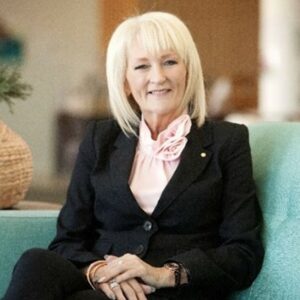
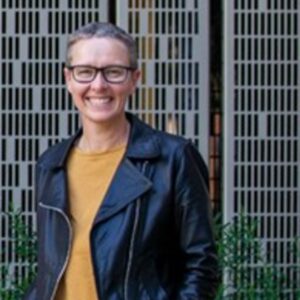
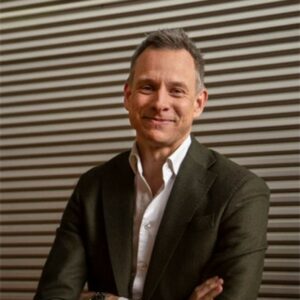
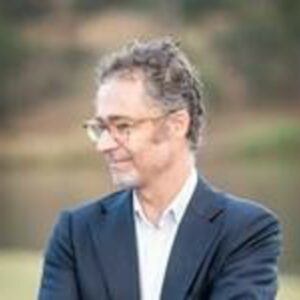 Dr Alex Cooke
Dr Alex Cooke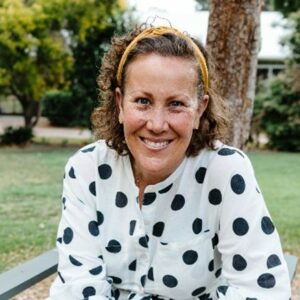 Julia Spicer OAM
Julia Spicer OAM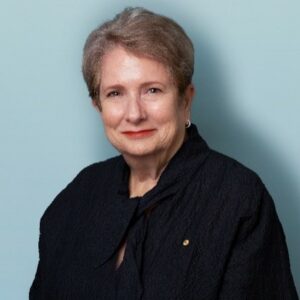 Janine Walker AM
Janine Walker AM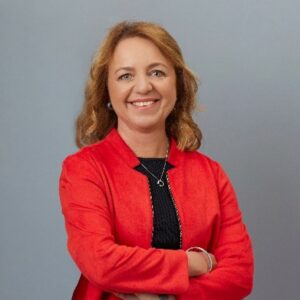 Professor Daphne Flynn
Professor Daphne Flynn 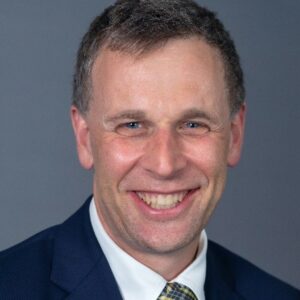 Associate Professor Krispin Hajkowicz
Associate Professor Krispin Hajkowicz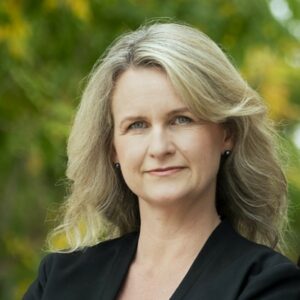 Dr Branwen Morgan
Dr Branwen Morgan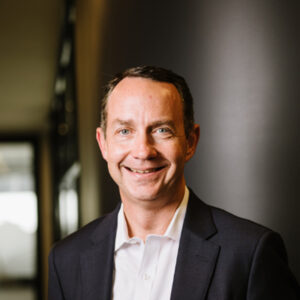
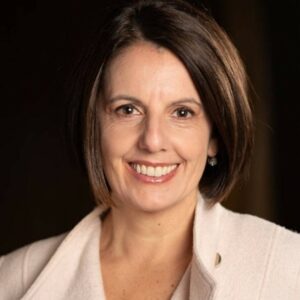
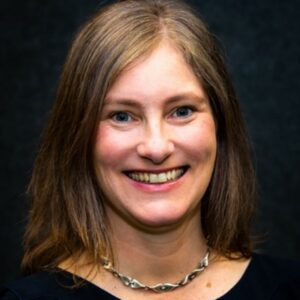 Michele Graham
Michele Graham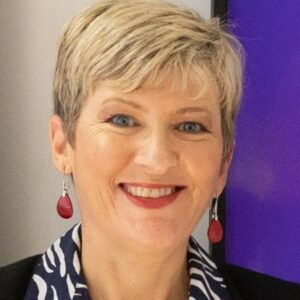 Dr Nicole Garofano
Dr Nicole Garofano 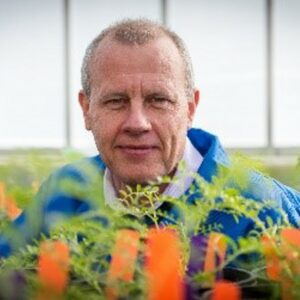 Dr Crispin Howitt
Dr Crispin Howitt  Emeritus Professor Roy Green
Emeritus Professor Roy Green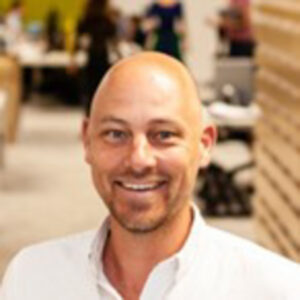 Brenton Caffin
Brenton Caffin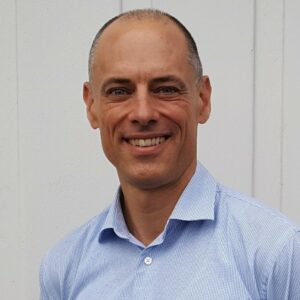 Dr Stephen Craig
Dr Stephen Craig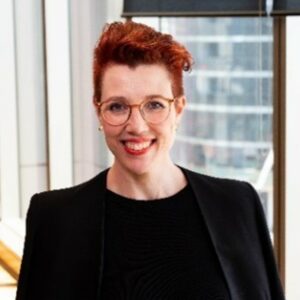 Tara Gardiner
Tara Gardiner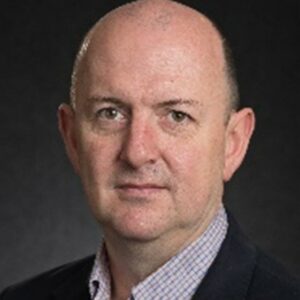 Dr Patrick Hartley
Dr Patrick Hartley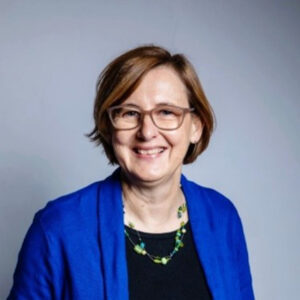 Professor Jenny Seddon
Professor Jenny Seddon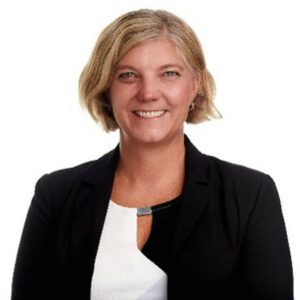
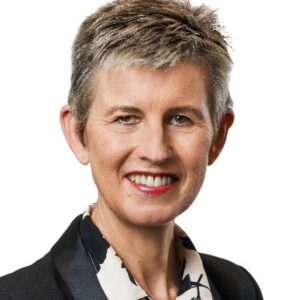 Dr Bronwyn Evans AM
Dr Bronwyn Evans AM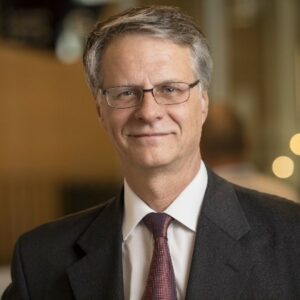 Dr Alex Held
Dr Alex Held 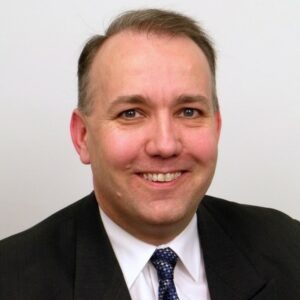
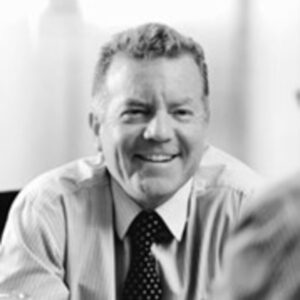 Steve Greenwood
Steve Greenwood 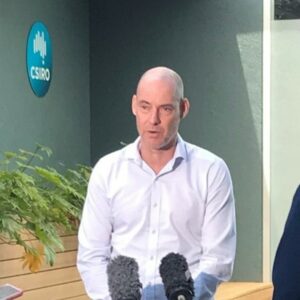 Dr Ryan McAllister
Dr Ryan McAllister 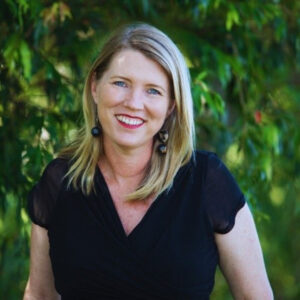 Nicole McNaughton
Nicole McNaughton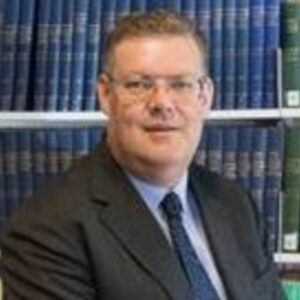 Dr Rohan Nelson
Dr Rohan Nelson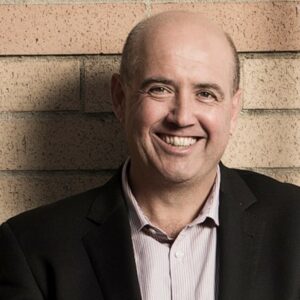 Sam Buculo
Sam Buculo 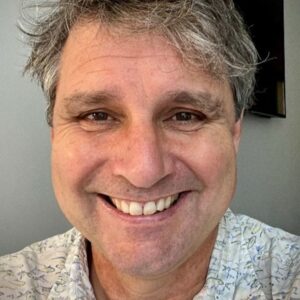 Dr Michael Battaglia
Dr Michael Battaglia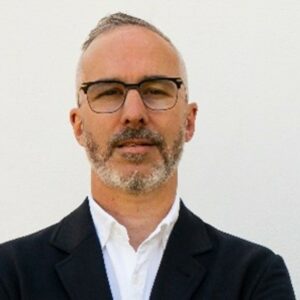 Professor Dan Hill
Professor Dan Hill 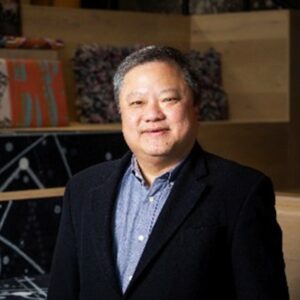 Professor Swee Mak
Professor Swee Mak Ryan Winn
Ryan Winn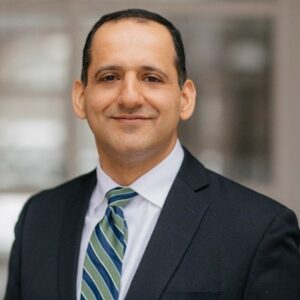 Professor Amro M. Farid
Professor Amro M. Farid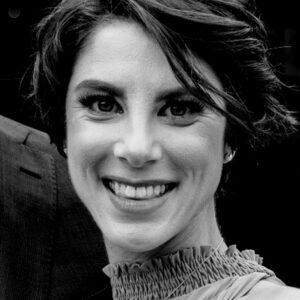 Peta Olesen
Peta Olesen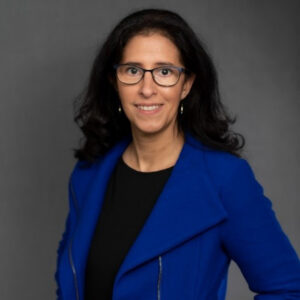 Andrea Sosa Pintos
Andrea Sosa Pintos Adam Stingemore
Adam Stingemore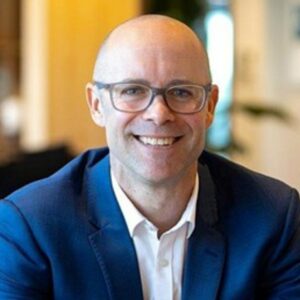 Alex Blauensteiner
Alex Blauensteiner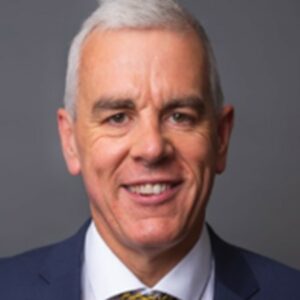 Dr Chris Locke
Dr Chris Locke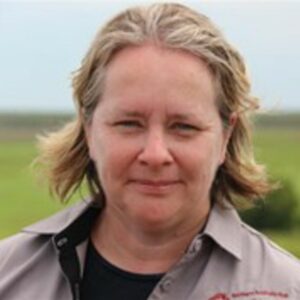 Dr Catherine Robinson
Dr Catherine Robinson